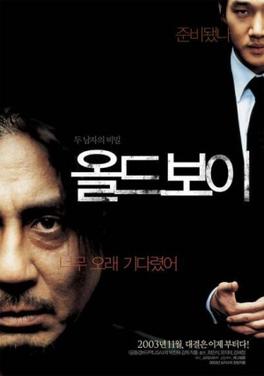Pages
▼
Saturday, October 29, 2016
Oldboy (Park Chan-wook, 2003)
It's about as improbable a premise for a thriller you'll find: A man, out on a drunken spree, wakes up imprisoned in what looks like a cheap hotel room where he stays, not knowing who put him there or why, for 15 years. His only contact with the outside world is a television set; his food is slipped to him through a slot in the door, and occasionally gas that puts him to sleep is pumped in the room so that it can be cleaned while he is unconscious. Then one day he is suddenly released and provided with cash and a cell phone. He begins to hunt compulsively for answers about who has done this to him. It's a mad plot, riffing on themes of guilt and obsession that are worthy of Kafka or Dostoevsky, but instead are cast in the idiom of horror movies and martial arts films. Eventually, the protagonist, Oh Dae-su (Choi Min-sik), will find the answers to what he seeks, but the truth will be more shattering than satisfying. Oldboy won the Grand Prix at the Cannes Festival, and no one who knows movies will be surprised to find that the jury was presided over by Quentin Tarentino, who gets the same inspiration from violent pop culture that Park Chan-wook demonstrates. The screenplay for Oldboy, on which Park shares credit with Lim Chun-hyeong and Hwang Jo-yun, was based on a Japanese manga. Park has said that he named his protagonist Oh Dae-su as a near homonym for Oedipus, who shared a similar fate when he discovered the truth, but Oldboy is closer to Saw (James Wan, 2004) than to Sophocles. Nevertheless, Oldboy has provocative things to say about guilt and revenge, and Choi's performance as the abused and haunted Dae-su is superb. Yu Ji-tae is suavely menacing as the villain, and Kang Hye-jeong is touching as Mi-do, who aids Dae-su in his quest. The often startlingly grungy production design is by Ryu Seong-hie and the cinematography by Chung Chung-hoon. There is a stunningly accomplished long take in the middle of the film in which the camera follows Dae-su as he single-handedly battles an army of opponents in a hallway that stretches across the wide screen like a frieze on the entablature of a temple. For once, however, a tour-de-force display of cinema technique doesn't overwhelm the rest of the film.
Charles Matthews
